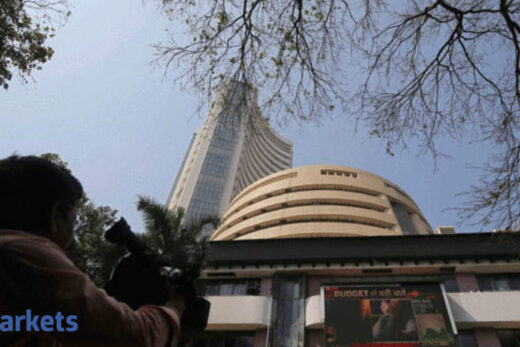Credit Suisse is making a case for an exceptionally strong year for India, but they are also saying that it is time to be careful because even if earnings are strong, the valuations do not support the risk reward ratio. We may be in the middle of a good earnings season and companies may outperform. Do you think markets are factoring that in?
In the next few months, we will contend with the issue that the markets have had a very strong, almost one-way rally and the valuations are not cheap and there are some pockets of the market which are a little frothy but at the same time, there are also certain parts of the market which are not very elevated either.
There is a certain amount of balance in the market but I would like to think that we have probably had a relatively smoother ride. Certain risks are lurking in the sidelines. Right now, they may not be very prominent but we need to be careful about those and some of these risks can unfold over the next six months — whether it is central bank action with regard to stimulus deceleration or commodity prices showing further inflationary trends. Even vaccination trends in India could be a factor.
So I would say that we are a little stretched in the very near term, but in the medium to long term, we still have enough levers to grow and so we should be reasonably fine. The overall valuations are high but they are not of the type which really makes you run away from the market. We are in a somewhat balanced zone at this stage with a certain amount of potential risks.
The historical benchmarks for bull markets are high retail participation and a lot of action in the IPO market. But this time I genuinely feel it is different. Many say that these two indicators are indicating that markets are about to peak out. What is your view?
We have got some of these telltale signs that we need to be careful about but we have to put all these telltale signs of the historic past in the current context and then make a decision. Enough retail participation is going around but we are still under owned as far as equities as an asset class is concerned. So that has not really gone up as much as the intensity of increase in demat accounts seem to suggest.
There is short term trading related activity wherein the market is probably a little more concentrated. The second thing is if we were to use IPOs as a barometer, we need to differentiate among the kind of IPOs which are coming in today versus what probably used to come in five years or maybe even 10 years ago post or around the Great Financial Crisis (GFC).
I think the nature of the businesses is different and the latest ones are relatively asset light models. I am not trying to say that everything is hunky dory. It is just that the circumstances are different, the overall backdrop of the economy and the way tech and digital opportunities are evolving around us is something that we need to put in context.
But yes, from the point of view of valuations of some of these IPOs, they are clearly for the long haul and therefore one needs to kind make the investment horizon significantly long to make some money out of these. One may not lose as much as one did in the case of asset heavy businesses in the past cycle of IPOs, But nonetheless, the basic principle of investing still needs to be adhered to. There are certain similarities and there are certain differences and we need to weigh one against the other.
What started off with stock prices is not spelling out in earnings. I want to start with IT because that is where a large chunk of earnings are already out. How are you navigating amongst the IT pack and is there a higher tilt towards midcap IT?
The way we are cutting the IT pie is more on the basis of services. Typical IT services versus specialised ER&D services. The runway to growth available to some of these companies in the ER&D space versus typical IT services could be a little different and therefore the more CAGR growth oriented prospects could be a little higher compared to traditional IT services.
But having said that, currently there is a very strong tailwind behind even traditional IT services and we are seeing that across the board as far as top lines of most IT companies are concerned. We are looking forward to even better quarters given the kind of pipeline that these companies have. That is something which is quite enthusing and that will hold up the valuations the way these IT companies even in the traditional IT services segment. Of course, along with that, gradually now risks on costs are starting to emerge as well. So, we have to be careful with regard to attrition rates and how the employee parameters are managed and how employee costs are managed.
What we are playing for at least as far as IT companies are concerned is bottom line growth which is probably going to mimic more of top line growth over a period of time. At this stage, we are probably playing as much for either the operating leverage or the margin expansion upside and not playing for value anymore.
We had a decent number of IT stocks that we were playing with for the value proposition towards the second half of last year, But that is probably not as much as the proposition on the table right now. So essentially growth at a reasonable price or maybe a little more price is how we are cutting it in our mind. It is more of a division between traditional versus something which is a little more specialised and we are equating some of the tech platforms along with them. So it is a mix between IT services platforms and ER&D services.
What are you making of the banks’ earnings?
We have a reasonably positive sense towards banks especially from the start of the calendar year and particularly after the prior two quarters of the last calendar year.
In the last two quarters of the last calendar year, we got a reasonable amount of comfort in terms of the way the government has managed the first wave. This quarter (Q1) results are decent, a little mixed in terms of the overall asset quality related outcomes although relatively smooth in terms of operating income. We are at a stage where this quarter probably may not be the end of the best quarters in terms of explanation regarding banks given that they have gone through the second wave as well but outcomes are reasonably controlled. But they are slightly on the higher side. In some cases, these are reasonably well managed and in general, a very exciting part about the financials is that even if we were to have a slightly adverse or passive quality outcomes for a while, given that some residual elements of the pandemic may linger, but the good part is valuations are not of the level where that does not come in the way as much,
So, to that extent, we are in a relatively more secured position. We can hold it out for a couple of quarters even if we were to probably see a little more sluggishness in terms of stock performance. That is the approach we are taking. We need to take a slightly more FY23 onwards kind of outlook as far as banks are concerned with regard to earnings. This is a sector which can probably have a better earnings CAGR over the next two-three years, especially if we start seeing some better trend around credit growth in the system which today is virtually not there.
Even if we were to see a little more sluggishness, it should be okay because valuations are not coming in the way. We are reasonably constructive from a couple of years’ perspective as far as the banking sector is concerned.



